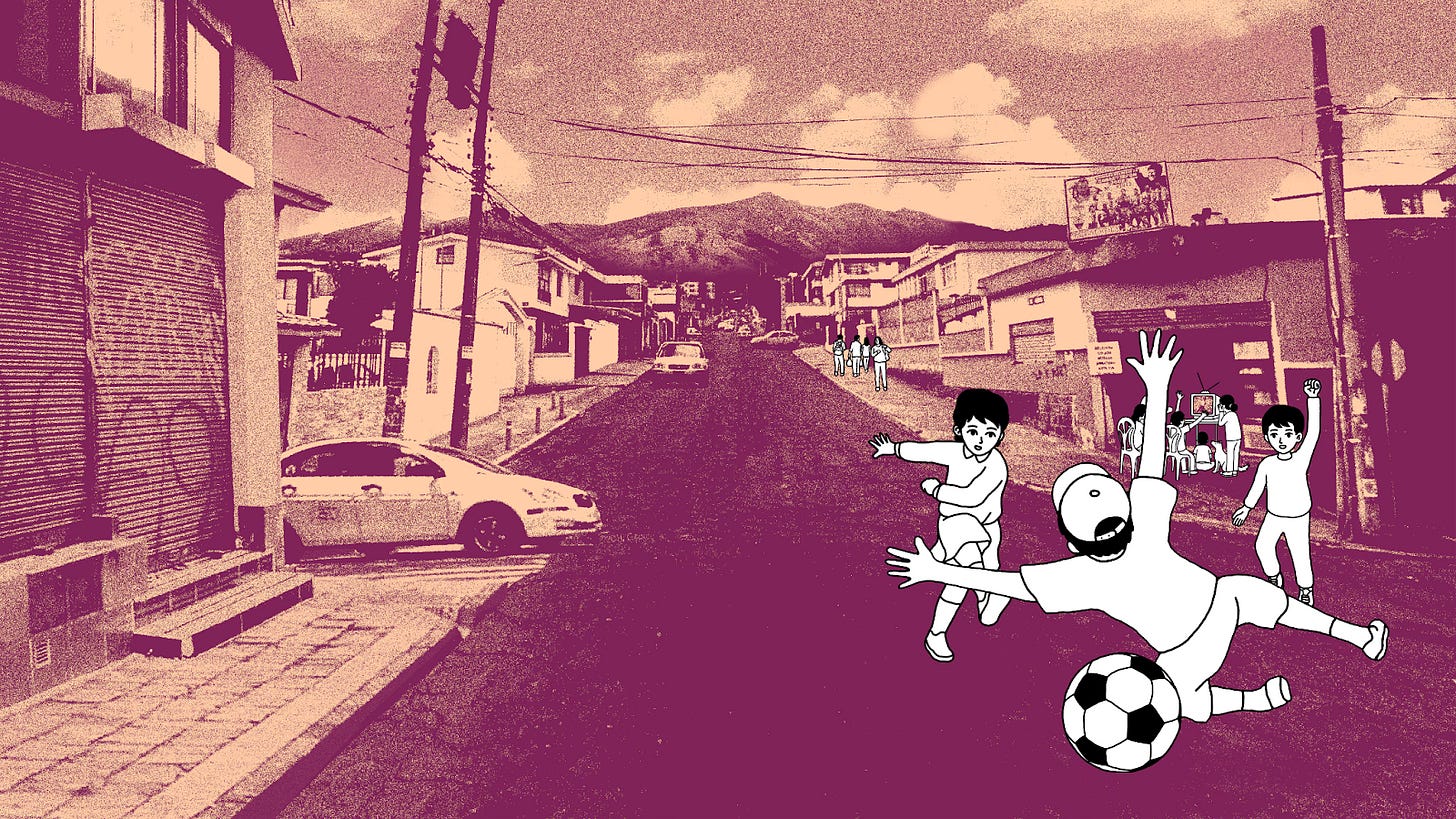Every memory of my childhood is now at the point where it’s just images, moments, and feelings. I remember remembering more, but now there’s just the story I constructed as a kid that lives in my head, with a few screenshots to verify that the story is probably true. I know I had a Ninja Turtles themed birthday when I turned four and that I had a great time, but I literally only remember an image of a Ninja Turtles backpack, and my best friend coming over while holding some clown-looking turtle I’d never heard of. If someone told me that I actually hated Ninja Turtles and that my best friend was in fact my greatest enemy, I’d have to shrug and say, “huh.” This early-memory-processing is such an interesting feeling that occurs for every single adult human being on most days, if only for a moment, but it’s rarely approached by art. There are plenty of stories told from a child’s perspective, but very few that actually capture the feeling of being a kid, and less that capture the feeling of remembering being a kid. Despelote does an unbelievable job of accomplishing the latter.
A game about a young boy, Julián, in Ecuador during the 2001 economic crisis, it tells a story that matches the real life events of when the entire country was gripped by soccer; their team had the first chance in history of qualifying for the World Cup just as their currency was melting down. The word “despelote” means “meltdown,” but you wouldn’t know it based on the gameplay. While newspaper headlines get more and more dire, the mundane pace of day-to-day life progresses slowly, which allows kids to be kids. You mostly kick a soccer ball around town, though you will definitely be scolded often, since the adults don’t have the patience to be terribly attentive while trying to make sense of their changing lives. What’s so interesting about this game, besides the very true-to-life feeling of the story’s time capsule, is how the story is told.
If you think of a far off memory, you don’t see everything like when you remember that weirdo who walked by you on the train this morning. You see bits and pieces, with most of your focus on one specific element, like your mom’s voice or the smell of the adults’ coffee. Despelote’s creators know this. The entire game is composed of vignette moments in a narrator’s memory, with all of the scene textures having a colored, grainy photo look to them. No object is immune: the ground, the fountain, even other people if they didn’t make an impact on Julián, are doomed to be faded into the background. Meanwhile, everything that really stuck out and made an impact on the boy is an animated 2D cartoon. Nothing silly or Looney Toons-y, just a white cartoon instead of grainy, faded static. The feeling is immediately arresting, both because it really does remind me of the feeling of focus in a memory, and also because the game does an outstanding job of onboarding you to its language within the first five minutes. As Julián enjoys himself in this grainy world, he can see that something important happens, which causes that object to become a cartoon. It’s so clear and such a brilliant way to depict a feeling we’ve all felt.
Then there’s The Park. We all had some kind of constant in our lives – for some people it was Dad’s car, and for others it was Grandma’s house. For me it was the streets just outside my different homes as my family moved from city to city, but again, if someone said that I actually grew up on that SHIELD helicarrier and there were no streets because I was on a fictional sky fortress, I’d have to just say, “memories do be crazy.” In Despelote, the big constant is the park where Julián’s parents insist that he play, or where they insist that he doesn’t play, whenever they need him out of their hair. And in the park, he of course accidentally annoys everyone – at least, he does if you play the game like a normal person. There’s probably a psychopath out there who actually sat where Julián’s mom wanted him to sit, and that person should be studied, but most people will incur strangers’ scolding. An iconic moment involves Julián following his sister underneath a table at a wedding, and hearing her say that it’s the only place where she isn’t told when she can and can’t play. Most children throughout history have been raised by people without the resources, whether they be financial or emotional, to give kids the agency that they need.
The one place where Julián really gets to exercise his limited agency is that park. It’s his constant, the one thing he and everyone in the neighborhood can rely on to be there. One of the creators of Despelote has said that he doesn't really remember the park very well, which is part of the reason he made this game: so that it can live on, and doesn’t have to be doomed to just be a texture in the background.
Oh, Good
Drop Duchy - Someone combined Tetris with Carcassonne and I’m assuming that they’re going to be awarded this year’s Nobel prize. I struggle everyday to not buy it and ruin my queue.
Now Playing
Clair Obscur: Expedition 33 - Thank goodness Despelote was a short game, because I can’t put this down. Of course, I’m a parent, so “can’t put this down” actually means “playing it for 30 minutes a day, sometimes”. I look forward to writing about it in 2027.





